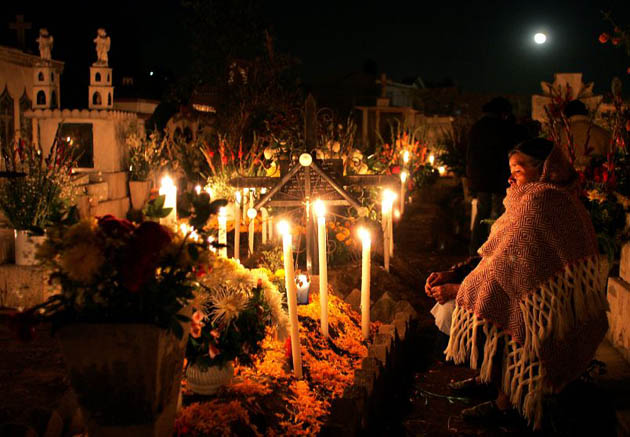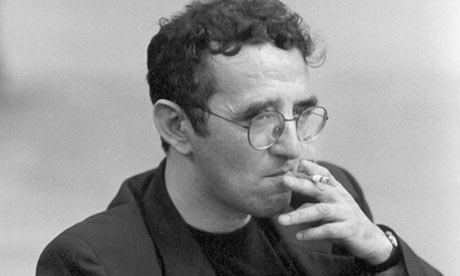 Post submitted by Bronson Pettitt.
Post submitted by Bronson Pettitt.In Mexico and in Mexican expat communities, November 1st and 2nd mark "Día de Muertos," or Day of the Dead. The two days are a chance for families to remember their lost ones, combining ancient Aztec, Mayan, Náhuatl, Purépecha and Totonocao traditions with Spanish Christianity. In the days prior, many Mexicans put up an altar in their house. Usually adorned with flowers (cempasúchil, or marigolds), a candle for and photo of each loved one, sugar or chocolate skulls, fruits, the sugary "bread of the dead" (pan de muerto), pumpkins, candied squash, religious symbols and paper decorations, the altar is said to be an offering for the departed.
On the first day of celebrations, families that have lost children will go to the graves where they are buried, clean and paint the site and spend the night telling anecdotes and stories. Usually, they leave toys at the grave.
The second day commemorates adults who have passed away and the tradition is similar to that of children, but it is common to take to the grave typical Mexican drinks such as tequila, mezcal, pulque or atole.
What´s uniquely Mexican about these days is the attitude. Ancient indigenous views took a more natural view toward death: the spirit of the departed was determined more by the way the person died rather than their behavior during their time on earth. Death was an accepted, not feared, part of life. These perspectives, with infusions of Christianiaty, are present today, not only on Día de Muertos but in Mexican culture in general.
Día de Muertos traditions, which coincide with All Saints' and All Souls' days and have similar variants in Latin America, are especially prominent in southern and central Mexico. Each region has its respective adaptations, and the customs can vary from town to town. Even in the sprawling Mexico City metropolis, the tradition is strong.
The city held a mega-offering in its humongous Zócalo, or main plaza, for 10 consecutive years, but this week's offering was cancelled as the country is hit by an economic crisis. However, nearly all of the capital's 16 boroughs feature their own altar, and the National Autonomous University of Mexico, or UNAM, is dedicating a mega-offering to poet Edgar Allen Poe.
Día de Muertos has evolved over the years. When celebrated during pre-Hispanic times, human skulls were used. Now, sugar and chocolate skulls, or calaveras, have come to symbolize the celebrations, and Aguascalientes-native José Guadalupe Posada mocked the Mexican upper-class society with his etchings of the famous La Catrina in the early 1900s. The portraits, often featuring dancing and partying skeletons, along with satirical poems and prose mocking the living and describing personality traits, have been taken in as part of the celebrations over the years.
To the dismay of traditionalists, inevitable culture clashes have made the Mexican custom increasingly popular in the United States, while Halloween's presence is growing in Mexico. Costume parties, horror-movie marathons on cable and children dressed as Chucky trick-or-treating are becoming more and more common.
Día de Muertos, a rich, colorful, spiritual, religious, complex, humorous, heart-filled, sad, bittersweet, evolving and very Mexican tradition, is a unique blend of cultures, with a growing presence wherever the "muerte es parte de la vida" (death is a part of life) attitude is present.
Sources: Wikipedia, El Universal, Periodico Zocalo
Image: Guardian UK
 * U.S.: By a razor-thin vote of 220-215 the U.S. House of Representatives passed a major health care reform bill.
* U.S.: By a razor-thin vote of 220-215 the U.S. House of Representatives passed a major health care reform bill.






















